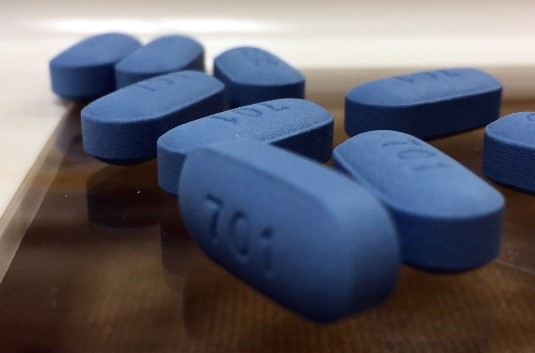Assessment proposes two ways to increase market access to PrEP in Namibia

The Namibian government has made reducing new HIV infections by 75 percent a national health priority. To support this initiative, SHOPS Plus assessed the feasibility of delivering pre-exposure prophylaxis (PrEP) through for-profit providers. The daily medication program is aimed at populations with a high risk of contracting HIV, including men who have sex with men, female sex workers, and adolescent girls and young women. Currently, the medication is only available through the public sector and a few NGOs in Namibia. SHOPS Plus examined the potential market size for PrEP under different scenarios, the ability of the private sector to meet that demand, and the regulatory environment that could support the private sector’s role. The analysis focused on the greater Windhoek area, which has a high concentration of private providers.
In a new report, the project proposes two solutions that leverage public-private partnerships to reduce costs and increase the accessibility of PrEP in the private sector. The report advocates for community awareness campaigns to educate priority populations about the risks of HIV and available treatment plans.
Solution 1: Partner with pharmacists
In the first proposed solution, the Pharmaceutical Society of Namibia would train pharmacists in risk assessment, counseling, testing, adverse effects, and prescribing practices for PrEP. They would then be allowed to dispense PrEP treatments without a clinician’s approval. This change could increase access to the preventive medication—and convenience for patients. The Namibian government would subsidize the price of PrEP drugs at participating pharmacies, allowing patients to receive this critical medicine at a quarter of the cost.
Solution 2: Dispense through a network of clinics
The second recommended solution built on an existing framework created by a network of 11 private clinics for another HIV prevention service—voluntary medical male circumcision. This effort consists of establishing a network of private clinics as designated HIV prevention facilities. Doctors at these locations would prescribe and dispense PrEP through a specialized government program. Clinics would purchase the medicines through the public sector’s supply chain, at a lower cost than private alternatives, which provides cost savings to the clinics that can be passed along to the patients. Similar to the first solution, this plan significantly lowers the barrier to entry for patient care institutions and promotes widespread accessibility of PrEP.
Awareness campaigns
SHOPS Plus identified a significant barrier to uptake of PrEP—demand—and recommended community awareness campaigns. The campaigns would educate local populations about the risks of HIV and the available prevention options, exposing health care professionals to the benefits of PrEP and encouraging patients to actively take control of their health.